What Happens To Your Body In Space
You'll Experience Space Sickness Due To Lack Of Gravity
 Image Source / Phys.orgWhen you're on a spacecraft in space, gravity will be a lot weaker than it is on Earth. This can cause feelings of sickness and headaches, and may also result in you actually throwing up if the nausea gets too bad. And you don't want to see vomit floating around the air... or in your helmet.
Image Source / Phys.orgWhen you're on a spacecraft in space, gravity will be a lot weaker than it is on Earth. This can cause feelings of sickness and headaches, and may also result in you actually throwing up if the nausea gets too bad. And you don't want to see vomit floating around the air... or in your helmet.Advertisement
You'll Be Unbalanced
 Image Source / European Space AgencyThese feelings of dizziness and sickness come from a particular organ in our bodies being unbalanced by lack of gravity. We have an organ in our ear called the vestibular organ which is responsible for keeping us balanced. With the low gravity of space, this organ is thrown out of whack - and our bodies along with it.
Image Source / European Space AgencyThese feelings of dizziness and sickness come from a particular organ in our bodies being unbalanced by lack of gravity. We have an organ in our ear called the vestibular organ which is responsible for keeping us balanced. With the low gravity of space, this organ is thrown out of whack - and our bodies along with it.Advertisement
But Space Sickness Will Go Away If You Stay In Space Long Enough
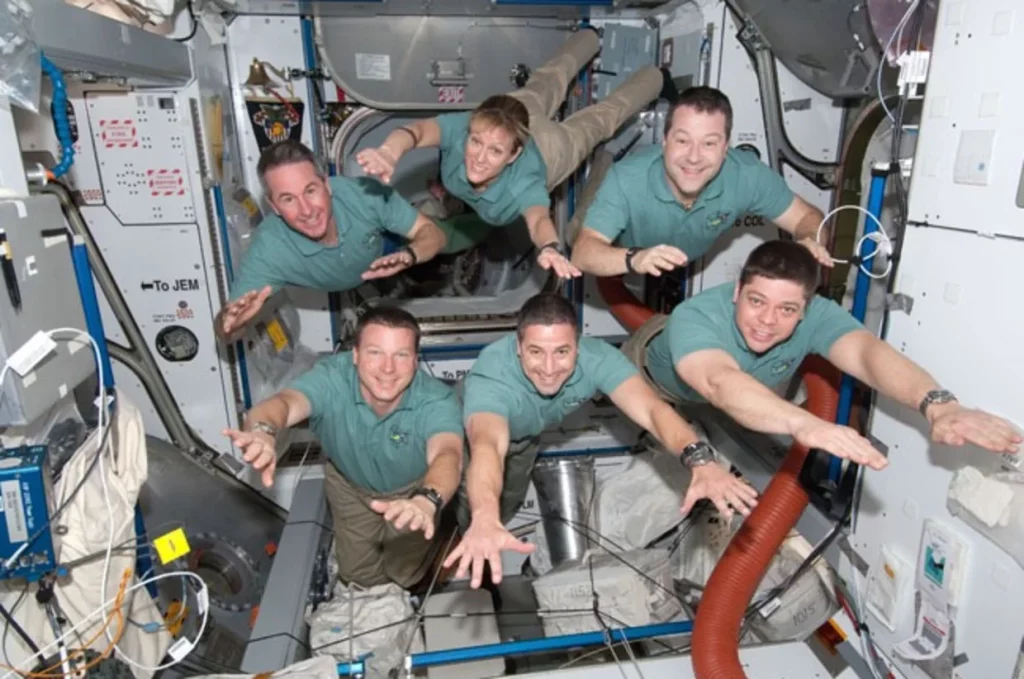 Image Source / NBC NewsAs is always the case with our amazing brains, it can adjust quickly to new environments. If you stay in space for at least a few days, then the sickness will eventually go as the brain adjusts to the new environment and the new information it's being given by the vestibular organ.
Image Source / NBC NewsAs is always the case with our amazing brains, it can adjust quickly to new environments. If you stay in space for at least a few days, then the sickness will eventually go as the brain adjusts to the new environment and the new information it's being given by the vestibular organ.Advertisement
Your Face Might Swell Up
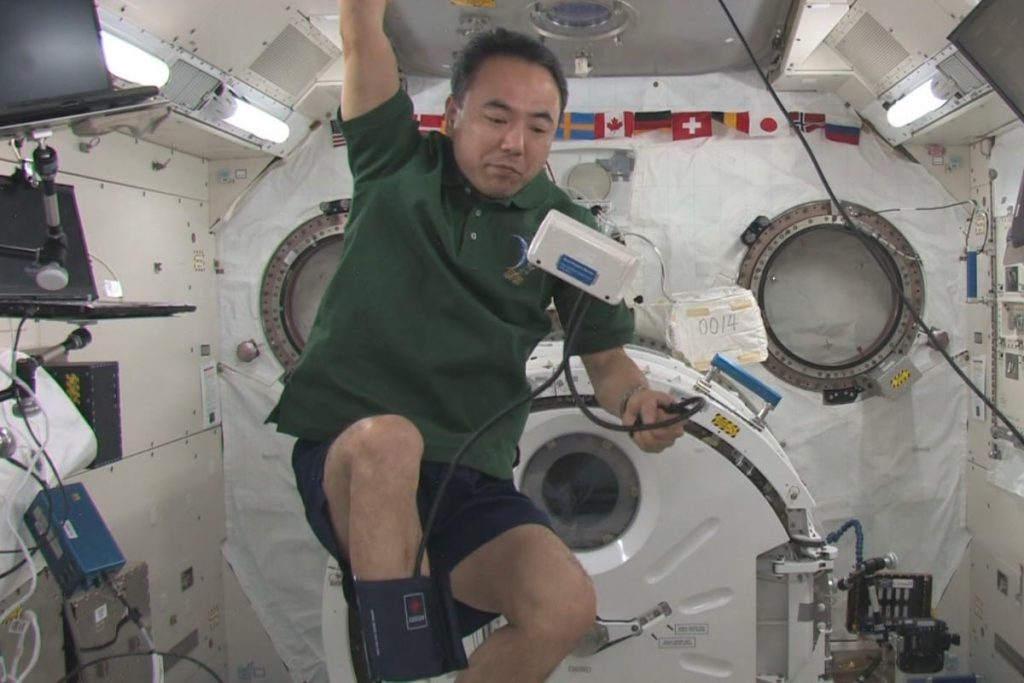 Image Source / humans.in.space.jaxa.jpThat handy thing called gravity is responsible for making blood (and other fluids) move to the lower body. When you're dealing with lack of gravity, this means that blood and other fluids aren't being pulled to the lower body in the same way. So you may find that lots of extra blood and fluid at your top end mean that your face swells up.
Image Source / humans.in.space.jaxa.jpThat handy thing called gravity is responsible for making blood (and other fluids) move to the lower body. When you're dealing with lack of gravity, this means that blood and other fluids aren't being pulled to the lower body in the same way. So you may find that lots of extra blood and fluid at your top end mean that your face swells up.Advertisement
The Mucuous Membranes In Your Nose Also Swell Up
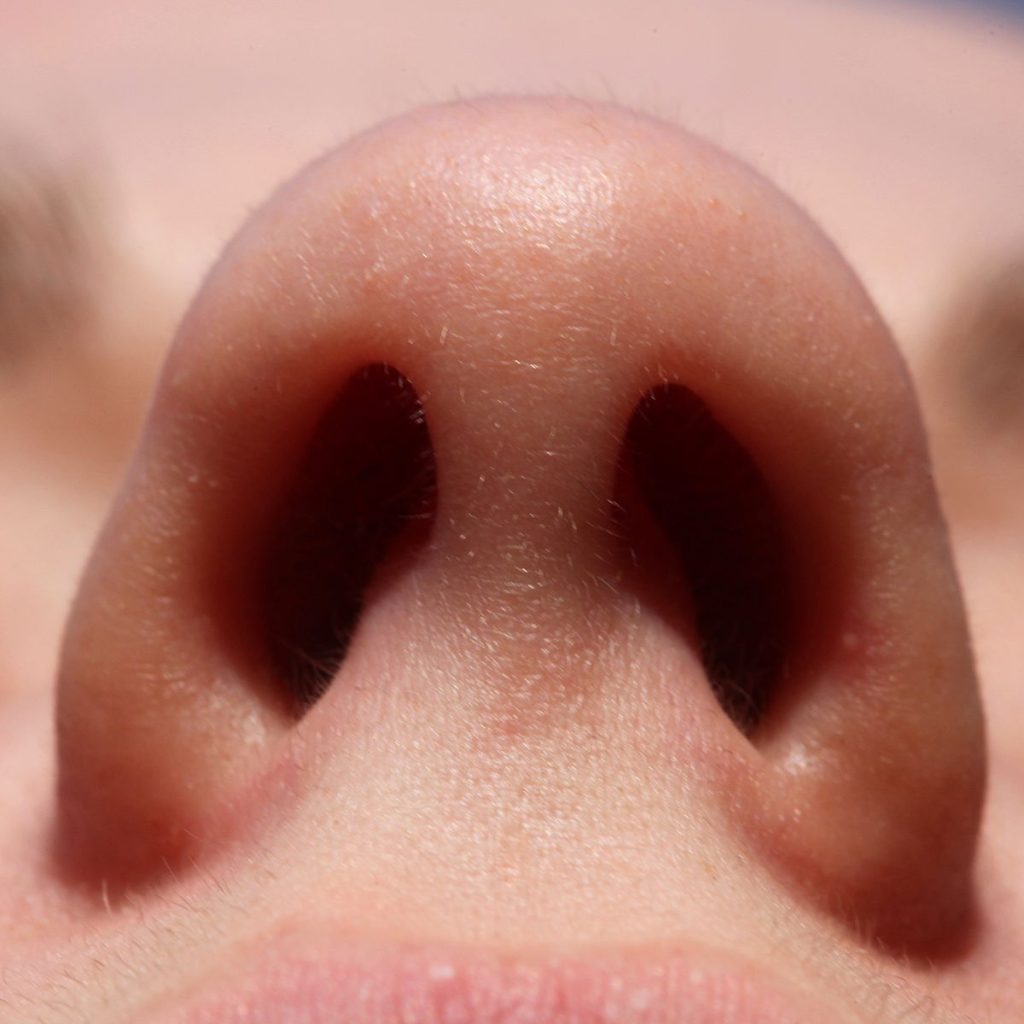 Image Source / WikipediaAstronauts often have congested noses due to the mucous membranes in the nose also swelling. This is also because of extra fluids pooling more at the top of the body - and particularly the head - due to gravity being all skew-whiff!
Image Source / WikipediaAstronauts often have congested noses due to the mucous membranes in the nose also swelling. This is also because of extra fluids pooling more at the top of the body - and particularly the head - due to gravity being all skew-whiff!Advertisement
But Swelling Will Also Go Away After A Few Days
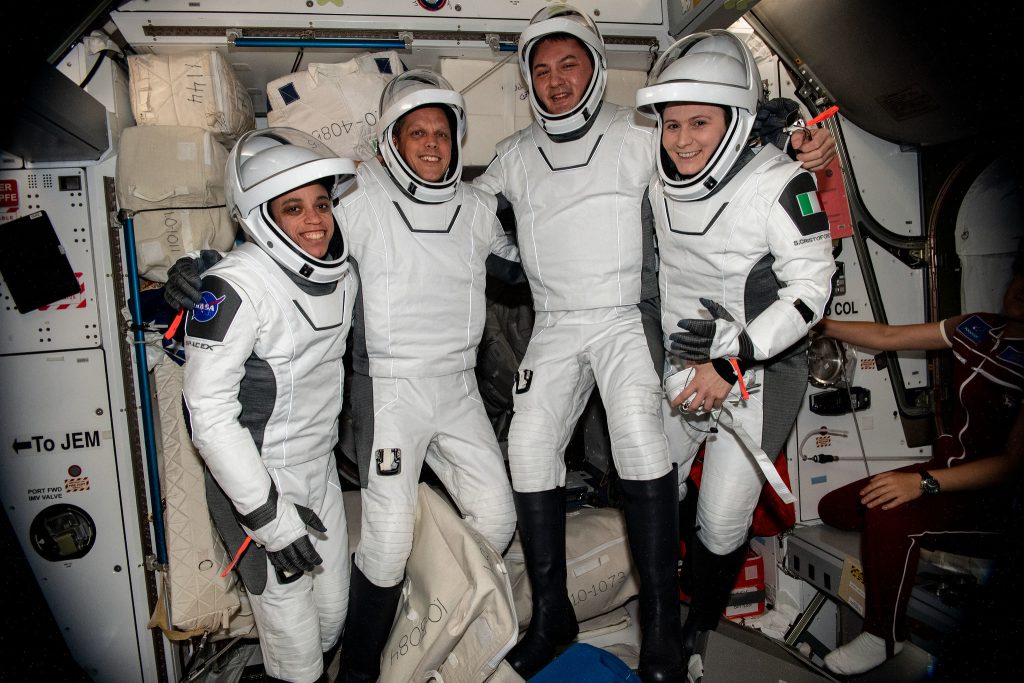 Image Source / TwitterOnce again, the body will balance itself out if you're in space for at least a few days. The fluids in the body sort themselves out after a while and you'll find that facial swelling will usually start to disappear after a few weeks.
Image Source / TwitterOnce again, the body will balance itself out if you're in space for at least a few days. The fluids in the body sort themselves out after a while and you'll find that facial swelling will usually start to disappear after a few weeks.Advertisement
Astronauts Will Get Dizziness When Returning To Earth
 Image Source / Daily MailWhen returning to earth after spending time in space, astronauts will usually experience a dizziness called orthostatic hypotension, which often happens when they stand up. This is again because of the difference in gravity, and when returning to earth, the force of gravity will have returned to being particularly strong.
Image Source / Daily MailWhen returning to earth after spending time in space, astronauts will usually experience a dizziness called orthostatic hypotension, which often happens when they stand up. This is again because of the difference in gravity, and when returning to earth, the force of gravity will have returned to being particularly strong.Advertisement
The Bones And Muscles In Your Body Will Weaken
 Image Source / The GuardianGravity is really doing a number on your body in space, huh? So because gravity on earth means you're automatically using the muscles of your lower body even without thinking about it, the reverse will happen in space because you're not resisting gravity. So muscles and bones - particularly in the legs and lower back - will become more weak.
Image Source / The GuardianGravity is really doing a number on your body in space, huh? So because gravity on earth means you're automatically using the muscles of your lower body even without thinking about it, the reverse will happen in space because you're not resisting gravity. So muscles and bones - particularly in the legs and lower back - will become more weak.Advertisement
And You'll Suffer From Spaceflight Osteopenia Over Time
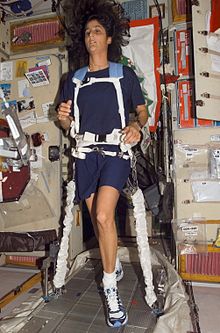 Image Source / WikipediaThis condition refers to bone loss that you can experience whilst in space. Every month spent in space means around 1% bone mass loss for an astronaut. If bone loss becomes extreme, the increase in serum calcium ion levels can result in permanent damage to the skeleton.
Image Source / WikipediaThis condition refers to bone loss that you can experience whilst in space. Every month spent in space means around 1% bone mass loss for an astronaut. If bone loss becomes extreme, the increase in serum calcium ion levels can result in permanent damage to the skeleton.Advertisement
You May Get Space Anemia (Decreased Production Of Red Blood Cells)
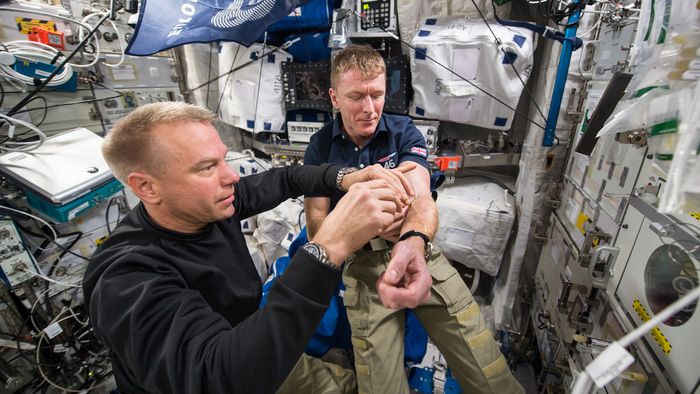 Image Source / Space.comWhen in space flight, astronauts can be subject to less red blood cells circulating in their body during the time that they're in space. This is also known as space flight anemia. While it's accepted that it can happen to astronauts, it's also not considered the biggest concern for those spending a long time in space.
Image Source / Space.comWhen in space flight, astronauts can be subject to less red blood cells circulating in their body during the time that they're in space. This is also known as space flight anemia. While it's accepted that it can happen to astronauts, it's also not considered the biggest concern for those spending a long time in space.Advertisement
You'll Float, Too
 Image Source / WIREDOf course, the most common thing people associate with astronauts and being in space is floating around due to weightlessness. You won't even have the sensation of any weight. This is also known as a zero G-force environment.
Image Source / WIREDOf course, the most common thing people associate with astronauts and being in space is floating around due to weightlessness. You won't even have the sensation of any weight. This is also known as a zero G-force environment.Advertisement
Your Eyesight May Be Negatively Impacted If You Spend A Long Time In Space
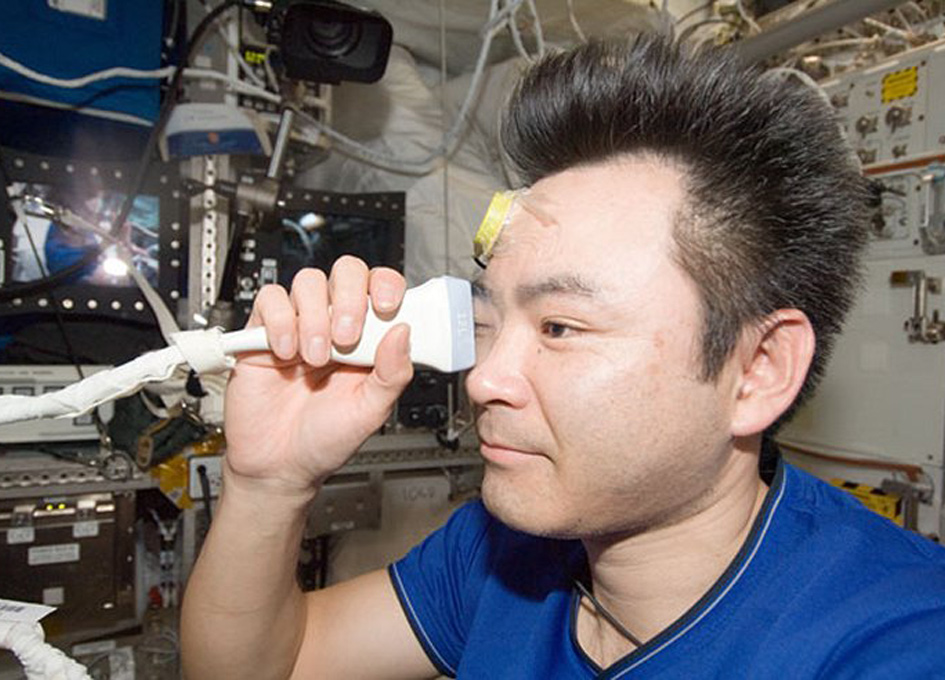 Image Source / SpaceRefThere is an official condition identified by NASA called Visual Impairment Intracranial Pressure Syndrome which can affect around 80% of astronauts in space if they're on long-term missions. Some astronauts may even suffer changes to their vision which are permanent even after they've returned to earth. Problems with vision in space are believed to be a result of increased pressure in the skull.
Image Source / SpaceRefThere is an official condition identified by NASA called Visual Impairment Intracranial Pressure Syndrome which can affect around 80% of astronauts in space if they're on long-term missions. Some astronauts may even suffer changes to their vision which are permanent even after they've returned to earth. Problems with vision in space are believed to be a result of increased pressure in the skull.Advertisement
Your Immune System Might Take A Hit
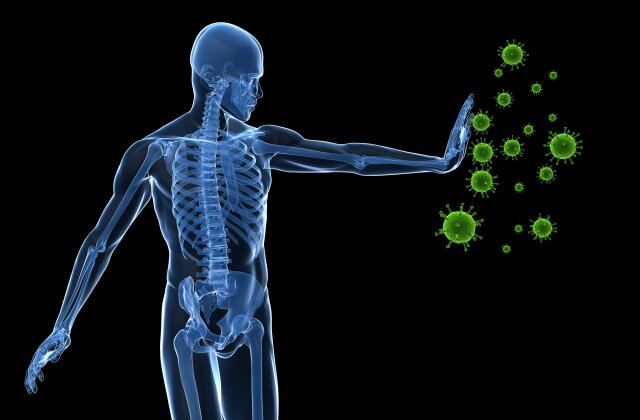 Image Source / US News Health - U.S News & World ReportDuring space missions over the years, astronauts were found to become easily sick with colds or infections very quickly after returning to earth. Others have even had an old virus resurface, like the chickenpox virus when you're only supposed to get that once in your lifetime! Studies suggested that microgravity - the lack of gravity in space - can negatively impact the immune system, too.
Image Source / US News Health - U.S News & World ReportDuring space missions over the years, astronauts were found to become easily sick with colds or infections very quickly after returning to earth. Others have even had an old virus resurface, like the chickenpox virus when you're only supposed to get that once in your lifetime! Studies suggested that microgravity - the lack of gravity in space - can negatively impact the immune system, too.Advertisement
You'll Be Exposed To Higher Energy Radiation
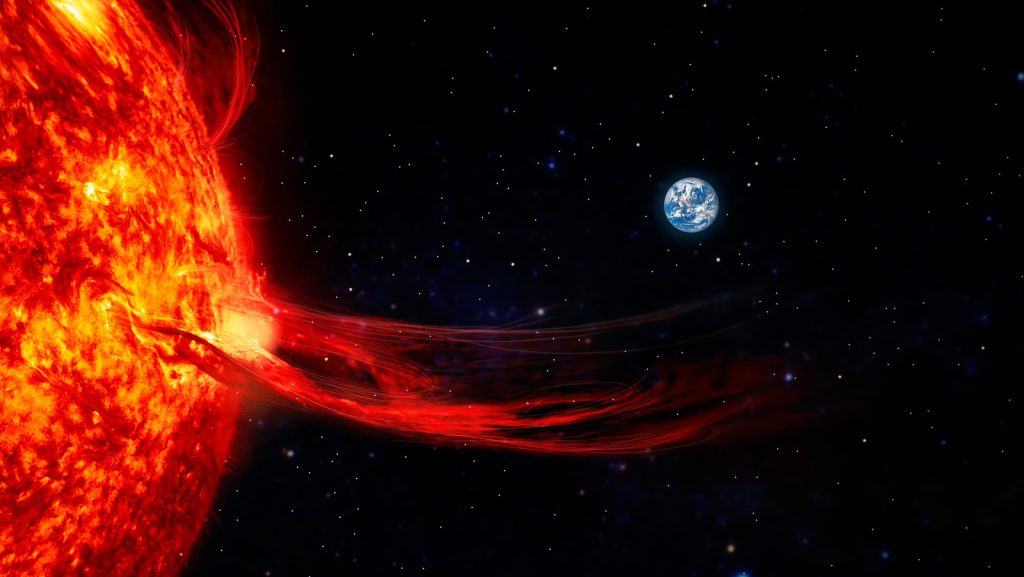 Image Source / SlashGearIn outer space, radiation is more extreme because there is no atmosphere, which - as you can imagine - can mean some negative things for the human body. The earth's atmosphere protects us from UV rays and radiation, so when you're exposed to these things without an atmosphere, you're at risk (and in extreme cases, this could mean at risk of developing diseases like cancer).
Image Source / SlashGearIn outer space, radiation is more extreme because there is no atmosphere, which - as you can imagine - can mean some negative things for the human body. The earth's atmosphere protects us from UV rays and radiation, so when you're exposed to these things without an atmosphere, you're at risk (and in extreme cases, this could mean at risk of developing diseases like cancer).Advertisement
You Might Get A Tad Stressed Being Cooped Up
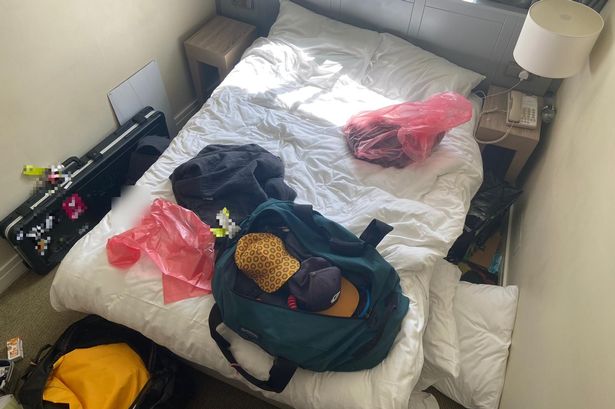 Image Source / MyLondonAside from the physical issues, there may be some mental drawbacks, too. Some spacecrafts see astronauts living in some very cramped conditions, day after day, which they have to share with others. Especially with areas like the bedroom, you may find you're in a very small bed, sharing a very small room, with others.
Image Source / MyLondonAside from the physical issues, there may be some mental drawbacks, too. Some spacecrafts see astronauts living in some very cramped conditions, day after day, which they have to share with others. Especially with areas like the bedroom, you may find you're in a very small bed, sharing a very small room, with others.Advertisement
You'll Fart More
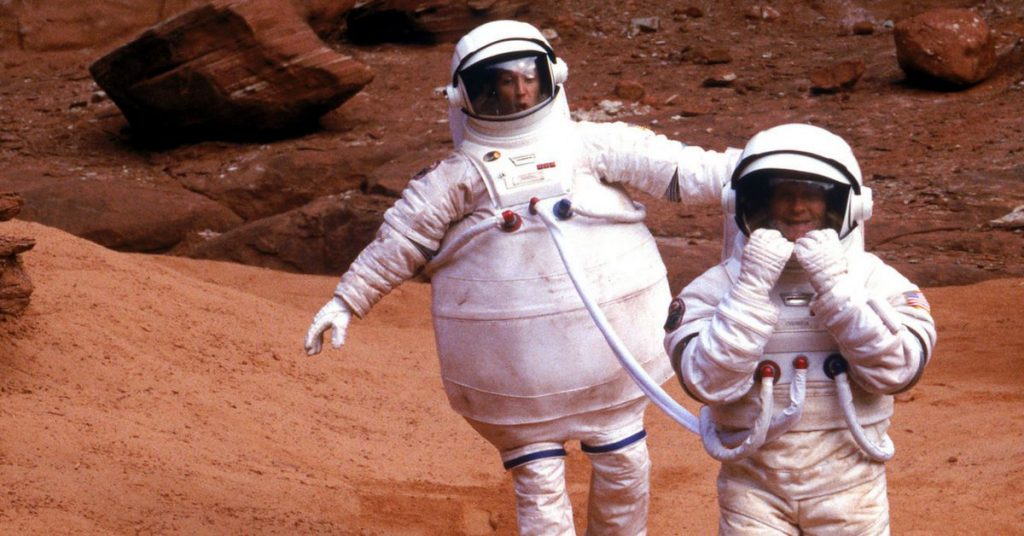 Image Source / ThrowbacksThis might seem like something you can just giggle about, but actually, it's a serious issue for astronauts. That's because the gas in a fart is flammable - and when you're on earth, pretending you haven't done it and waiting for it to pass, it isn't a big deal, but in a tiny, pressurised container, a flammable gas is quite a worrying thing.
Image Source / ThrowbacksThis might seem like something you can just giggle about, but actually, it's a serious issue for astronauts. That's because the gas in a fart is flammable - and when you're on earth, pretending you haven't done it and waiting for it to pass, it isn't a big deal, but in a tiny, pressurised container, a flammable gas is quite a worrying thing.Advertisement
You Probably Won't Get A Lot Of Sleep
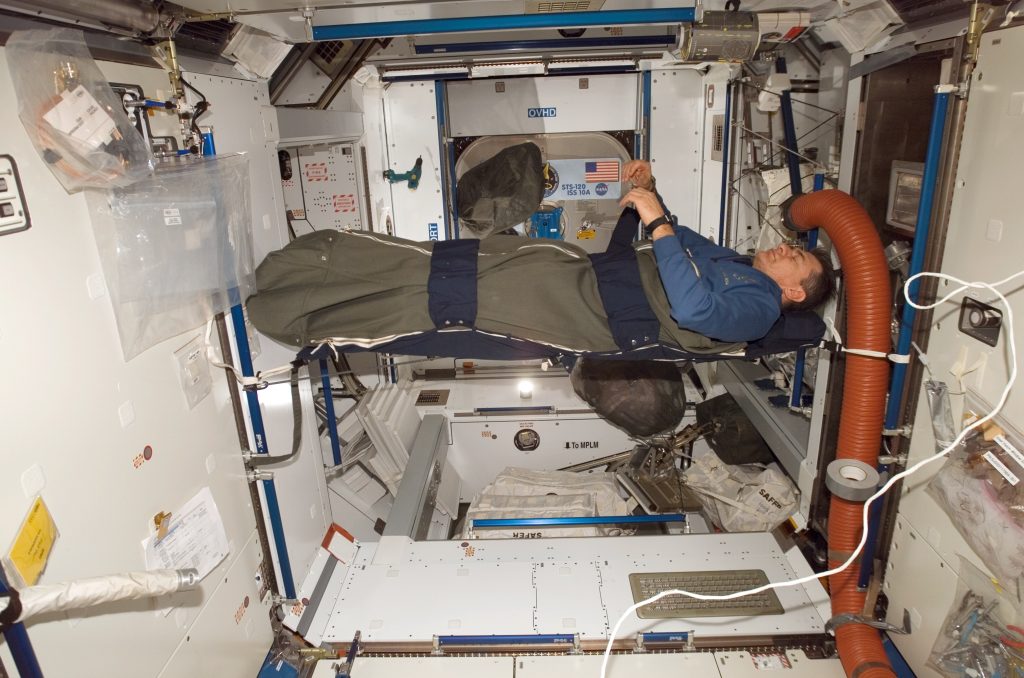 Image Source / WikipediaAside from the fact you're more likely to be disturbed in a tiny, cramped sleeping space with other people making noise, you may also struggle to have a natural sleep cycle due to your circadian rhythm (the natural 24-hour cycle) being thrown off whilst being out in space.
Image Source / WikipediaAside from the fact you're more likely to be disturbed in a tiny, cramped sleeping space with other people making noise, you may also struggle to have a natural sleep cycle due to your circadian rhythm (the natural 24-hour cycle) being thrown off whilst being out in space.Advertisement
You'll Have A Bad Hair Day - Every Day
 Image Source / WikipediaIf you're on a spaceship and you don't have anything to keep your hair in place, and you happen to have very long hair, you should expect it to float out above you and become pretty much an unmanageable mess!
Image Source / WikipediaIf you're on a spaceship and you don't have anything to keep your hair in place, and you happen to have very long hair, you should expect it to float out above you and become pretty much an unmanageable mess!Advertisement
There Can Be Long-Term Effects Of Space Travel
 Image Source / CNNThis is a lot about how the human body reacts or copes once returning to earth from long-term space travel. A lot of problems relate to microgravity (very small gravitational forces). The adaptations made by the organs of the body to fit into new gravity circumstances in space could mean long-term issues, like a lack of fitness, once returned to earth.
Image Source / CNNThis is a lot about how the human body reacts or copes once returning to earth from long-term space travel. A lot of problems relate to microgravity (very small gravitational forces). The adaptations made by the organs of the body to fit into new gravity circumstances in space could mean long-term issues, like a lack of fitness, once returned to earth.Advertisement
What Would Happen To Your Body In Space If You Weren't Protected?
Advertisement
The Lack Of Air Would (Understandably) Cause A Huge Problem
 Image Source / YouTubeThis is the very first thing you'd be contending with. Your body would use up your remaining oxygen in your bloodstream in about 15 seconds, and you wouldn't lose consciousness right away so you'd be conscious to feel what's happening.
Image Source / YouTubeThis is the very first thing you'd be contending with. Your body would use up your remaining oxygen in your bloodstream in about 15 seconds, and you wouldn't lose consciousness right away so you'd be conscious to feel what's happening.Advertisement
If You Didn't Hold Your Breath, You Wouldn't Last Very Long
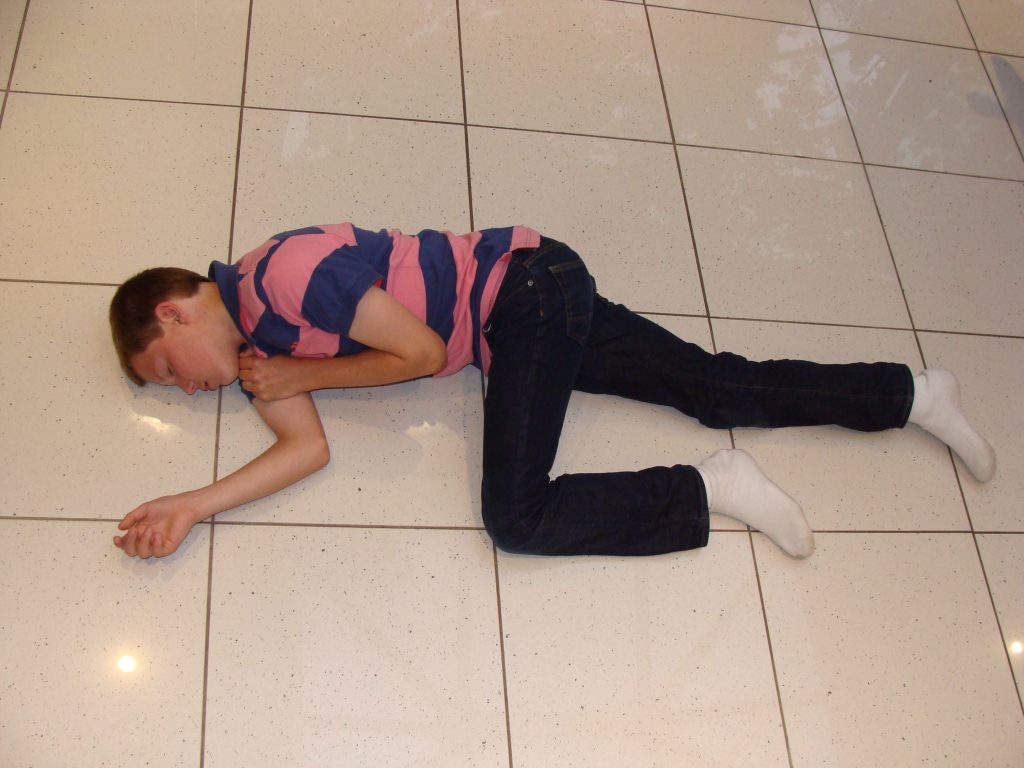 Image Source / First Aid for LifeIf you were still attempting to breath normally by inhaling and exhaling, you might last as long as two minutes - which means you might survive for an extra two minutes at best. In best case, an extra two minutes without any permanent injury (if you happened to get back to safety in time, we mean).
Image Source / First Aid for LifeIf you were still attempting to breath normally by inhaling and exhaling, you might last as long as two minutes - which means you might survive for an extra two minutes at best. In best case, an extra two minutes without any permanent injury (if you happened to get back to safety in time, we mean).Advertisement
And Holding Your Breath Would Actually Make Things Worse
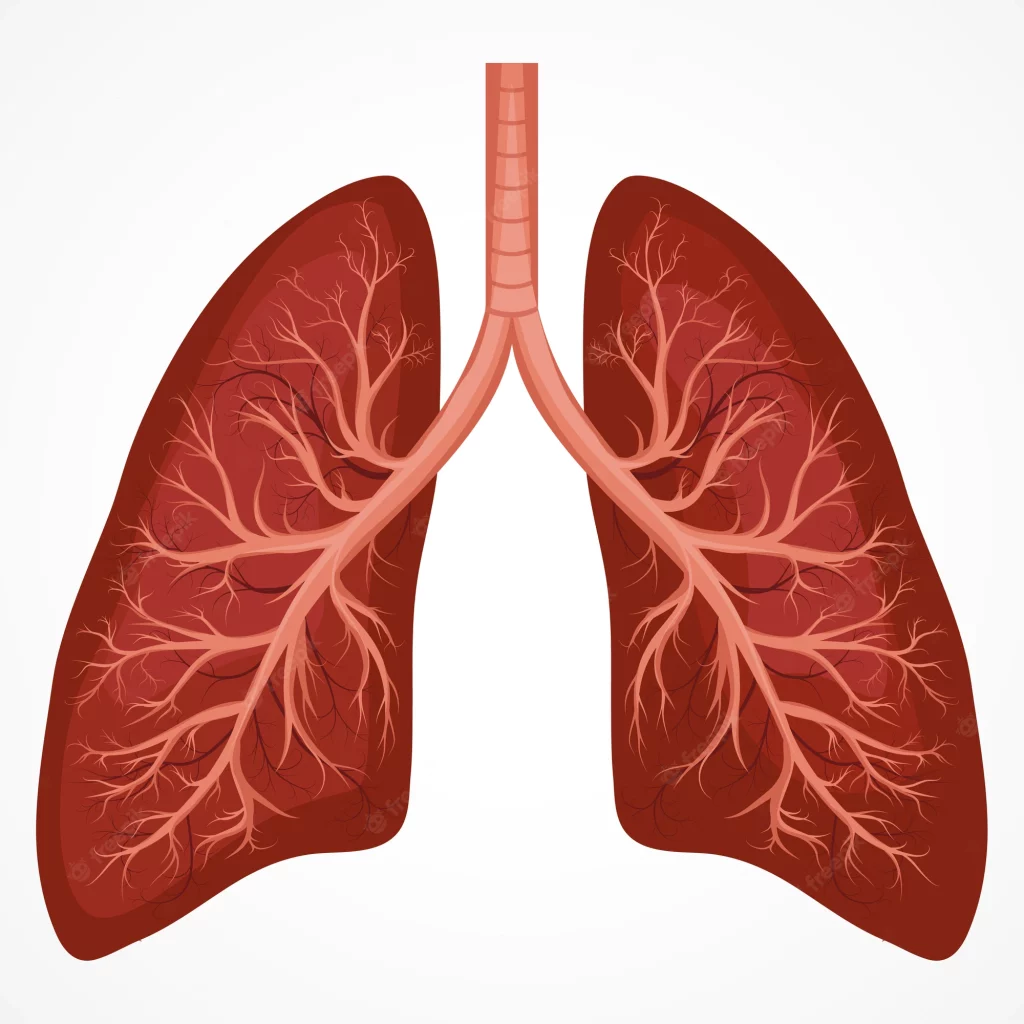 Image Source / FreepikThis isn't like trying to hold your breath underwater until you run out of air. If you hold your breath instead of trying to breath for that extra two minutes, it could actually mean that the gas trapped inside your lungs would cause them to expand and then rupture. So it's actually advised if you're thrown out into space to breath out and not hold your breath!
Image Source / FreepikThis isn't like trying to hold your breath underwater until you run out of air. If you hold your breath instead of trying to breath for that extra two minutes, it could actually mean that the gas trapped inside your lungs would cause them to expand and then rupture. So it's actually advised if you're thrown out into space to breath out and not hold your breath!Advertisement
Your Skin And Tissue Would Start To Swell After Only 10 Seconds
 Image Source / MDedgeAnd this isn't like what we said about astronauts' faces swelling up. This means actually ballooning up of the tissue under your skin, due to your body vaporising from the lack of atmospheric pressure. The human skin is strong enough to stop you from exploding, though - if that makes it any better. If you can manage to get back to safety, your skin and tissue will go back to normal.
Image Source / MDedgeAnd this isn't like what we said about astronauts' faces swelling up. This means actually ballooning up of the tissue under your skin, due to your body vaporising from the lack of atmospheric pressure. The human skin is strong enough to stop you from exploding, though - if that makes it any better. If you can manage to get back to safety, your skin and tissue will go back to normal.Advertisement
Your Blood Won't Be Affected - But Only If You Don't Go Into Shock
 Image Source / Medical News TodayLet's be honest - the idea of being expelled into space with no protection is enough to send anyone into shock. Your circulatory system won't be affected because it's great at keeping your blood pressure regulated - but only if your body doesn't go into shock.
Image Source / Medical News TodayLet's be honest - the idea of being expelled into space with no protection is enough to send anyone into shock. Your circulatory system won't be affected because it's great at keeping your blood pressure regulated - but only if your body doesn't go into shock.Advertisement
Your Tongue Might Start To Boil
 Image Source / WikipediaYikes. Exposed to vacuum-like conditions, the moisture on your tongue may begin to boil in your mouth. It's actually happened to a man named Jim LeBlanc who was exposed to a vacuum test when his spacesuit leaked; he described the feeling of his tongue bubbling before he fell unconscious.
Image Source / WikipediaYikes. Exposed to vacuum-like conditions, the moisture on your tongue may begin to boil in your mouth. It's actually happened to a man named Jim LeBlanc who was exposed to a vacuum test when his spacesuit leaked; he described the feeling of his tongue bubbling before he fell unconscious.Advertisement
You Might Get Some Pretty Bad Sunburn
 Image Source / WikipediaWe all know how bad sunburn can be. But imagine getting sunburn from being directly exposed to cosmic radiation out in space. The amount of unfiltered rays mean that you can probably expect to get pretty burnt.
Image Source / WikipediaWe all know how bad sunburn can be. But imagine getting sunburn from being directly exposed to cosmic radiation out in space. The amount of unfiltered rays mean that you can probably expect to get pretty burnt.Advertisement
You'll Likely Get Decompression Sickness
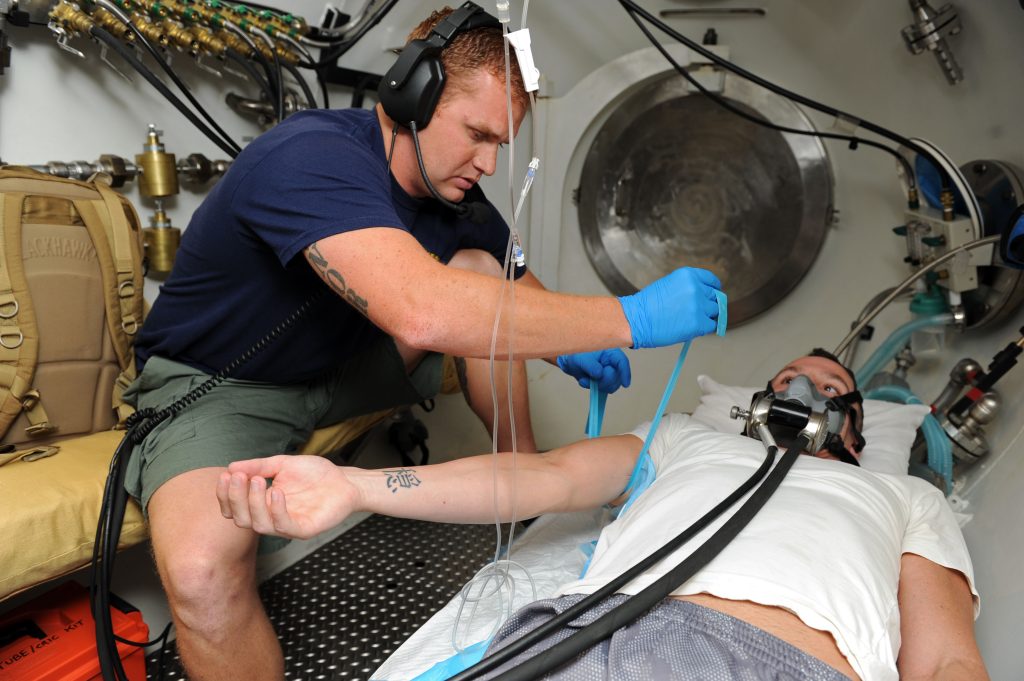 Image Source / WikipediaBecause you've been thrust into an area that has a complete decrease in pressure - ie, space - you'll likely get decompression sickness (also known as the bends when referred to divers coming up to the surface too quickly) which can also result in injury to the body.
Image Source / WikipediaBecause you've been thrust into an area that has a complete decrease in pressure - ie, space - you'll likely get decompression sickness (also known as the bends when referred to divers coming up to the surface too quickly) which can also result in injury to the body.Advertisement
But You Won't Freeze Straight Away
 Image Source / The Crime Fiction Writer's Blog - WordPress.comYou may have seen plenty of movies or TV shows which depict bodies being thrust into space and then freezing over due to the extreme cold. However, it isn't actually the case that you'd freeze straight away. Because heat from the body doesn't leave it quickly enough, you'll likely suffocate before you freeze.
Image Source / The Crime Fiction Writer's Blog - WordPress.comYou may have seen plenty of movies or TV shows which depict bodies being thrust into space and then freezing over due to the extreme cold. However, it isn't actually the case that you'd freeze straight away. Because heat from the body doesn't leave it quickly enough, you'll likely suffocate before you freeze.Advertisement
And If You Die, Your Body Won't Decompose
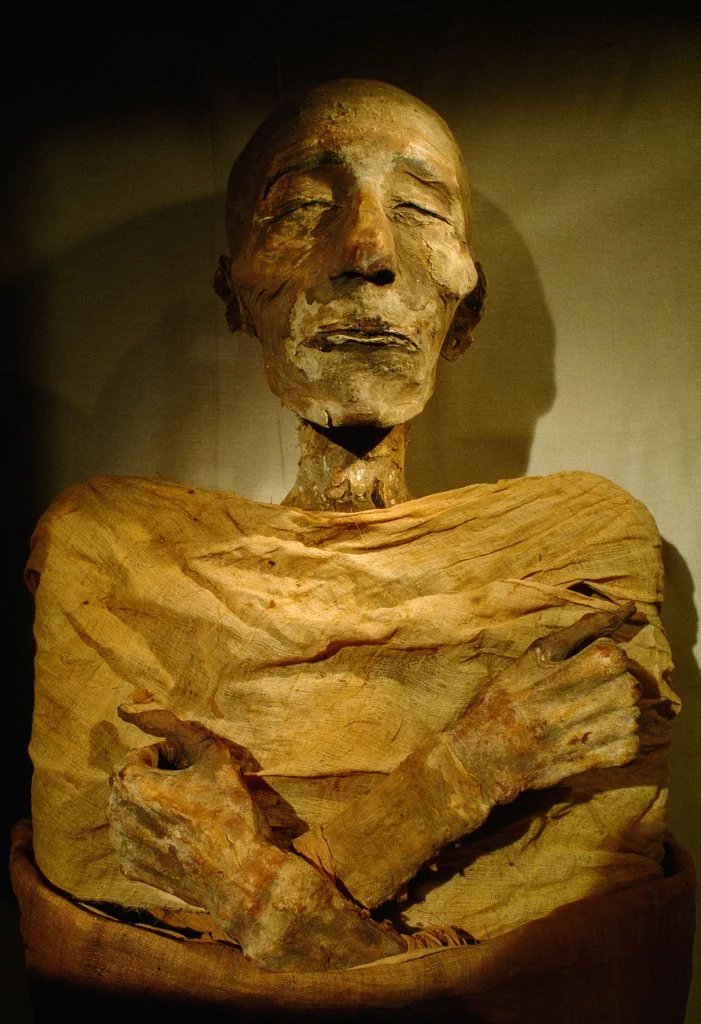 Image Source / National GeographicBecause there's no oxygen in space, your floating space corpse won't decompose in the way one usually does. Your body, as mentioned, would freeze over after your death if not exposed to any source of heat. If close to a source of heat, then your body would mummify instead.
Image Source / National GeographicBecause there's no oxygen in space, your floating space corpse won't decompose in the way one usually does. Your body, as mentioned, would freeze over after your death if not exposed to any source of heat. If close to a source of heat, then your body would mummify instead.Advertisement
It'll Also Last A Long Time In 'Pristine' Condition
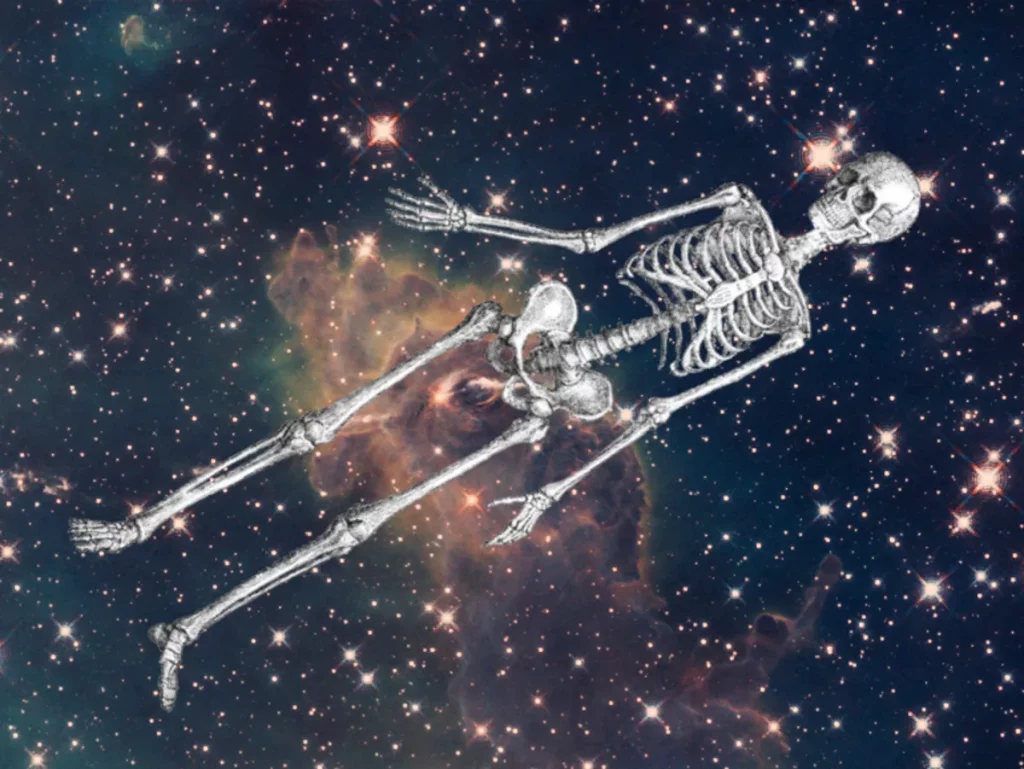 Image Source / CNETNo matter whether your body freezes over or mummifies, it would stay in its normal body-looking condition for a very, very long time in space before any changes are made in terms of your body looking a little worse for wear. If you'd like a pleasant thought, just know that your body could float out in space for millions of years. Yep.
Image Source / CNETNo matter whether your body freezes over or mummifies, it would stay in its normal body-looking condition for a very, very long time in space before any changes are made in terms of your body looking a little worse for wear. If you'd like a pleasant thought, just know that your body could float out in space for millions of years. Yep.Advertisement
